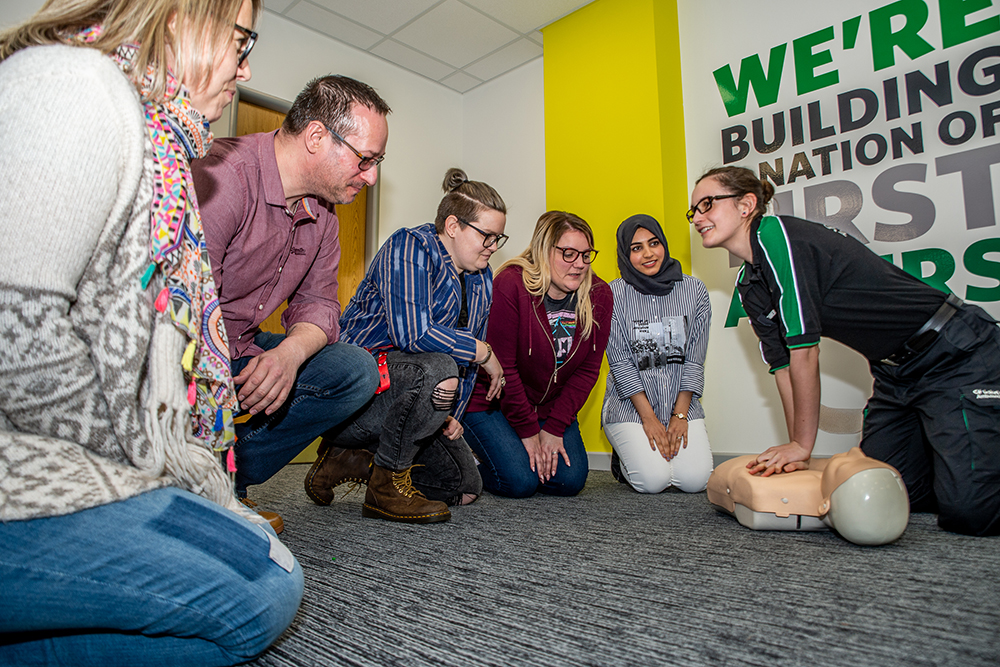How the UK could save £138 billion by prioritising workplace health and wellbeing
Working well relies on being well.
And a growing band of companies are now recognising their responsibility towards employee wellbeing – as well as the direct impact it has on their bottom line. Poor health costs the UK economy around £138 billion each year due to absence and low productivity at work, according to research.
As we navigate the complexities of modern work life, including the rise of remote and hybrid models, more businesses are embracing a holistic approach to employee health.
This comprehensive view of health, which includes both physical and mental wellbeing, is reshaping our work environments – and is the route to a healthier and more productive future.
Connecting the mind and body
The rate of employee sickness in the UK has climbed considerably since the pandemic. And although injuries and infections still account for a lot of sick days, poor mental health, including stress, depression and anxiety now make up half of all work-related illness.
This poor workplace health has a significant impact on both businesses and the economy more broadly.
On average, UK workers lose about six days a year through formal absence. However, the hidden cost is even higher: nearly a day a week is lost due to employees not working effectively because of ill health. This presenteeism, often masking conditions like depression, poor sleep quality and musculoskeletal issues, represents a substantial drain on productivity.
Alongside this, there is a growing awareness among employers of their responsibility with regards to employee wellbeing – particularly the interplay between mental and physical health.
And so effective health and wellbeing care in the workplace needs to change – becoming a multi-faceted support structure that considers workers both in and outside the workplace.
Building a culture of care
Despite the links between productivity and wellbeing, many workers feel that the culture in their workplace doesn’t support their general health. Creating a culture of care involves more than just complying with legal obligations. It requires a genuine commitment to employee wellbeing that permeates all aspects of the organisation.
Addressing this culture is key for businesses. As a starting point, companies that prioritise employee wellbeing often financially outperform competitors.
But there are also benefits in the form of improved job satisfaction and employee retention, reduced absenteeism and presenteeism, and enhanced productivity. Being seen as a company that cares also contributes to positive brand sentiments and company reputation.
Creating a workplace culture that genuinely supports employee wellbeing requires a commitment from all levels of the organisation – from top management to frontline workers. After all, illness and accidents can affect anyone; this is something we all have a vested interest in improving.
First aid as a key component of a successful wellbeing programme
First aid is a central component of a holistic approach to employee wellbeing. We’re not talking about the traditional approach which focuses on physical health alone. Instead, businesses need a rounded package of first aid that cares for both physical and mental health, preventing emergencies from arising and supporting when they do.
Ensuring there are trained first aiders available to all employees is part of creating a positive environment and showing employees you care. We are often told by people who attend our courses that, as well as giving them the skills to respond to situations, they also develop the confidence to act, and feel they are better able to support their colleagues.
And of course, a well-trained first aid function means a faster response in emergency situations – and often a reduced number of incidents because of an increased awareness of risks and triggers. This contributes to an overall improvement in workplace safety culture.
The challenge of caring from a distance
The rise of remote and hybrid working has created new challenges for businesses in maintaining a culture of care in distributed teams. It has also underlined the importance of taking a broader view of employee wellbeing.
Looking at wellbeing at work and home as two separate things has never been a viable approach, but now the remote working culture is blurring the lines between home and work life even more.
This means the benefits of comprehensive care often extend beyond the workplace. The skills and techniques learnt on a high-quality course are just as applicable to everyday life. Employers need to consider how they can support their employees' wellbeing, regardless of their physical location.
The shift towards holistic wellbeing is a fundamental reimagining of what it means to be ‘healthy’ at work. Being prepared for trips, slips, seizures and heart attacks is vitally important in the workplace – and indeed you would hope a simple first aid kit could address most workplace woes. But by considering the sometimes complex and interlinked relationship between mental and physical health at work, companies are helping to create a culture of care that extends beyond the office walls.
First aid is now about more than treating injuries. It is part of a package that supports the whole person. And as we continue to adapt to new ways of working, a comprehensive approach to health is becoming increasingly important.
When organisations invest in the complete wellbeing of their workforce, everyone wins. Companies can create environments where employees thrive, productivity soars, and the bottom line reflects the benefits of a truly healthy workforce.



